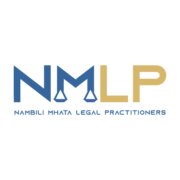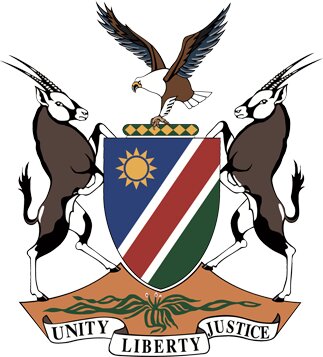Best Appeal Lawyers in Windhoek
Share your needs with us, get contacted by law firms.
Free. Takes 2 min.
List of the best lawyers in Windhoek, Namibia
About Appeal Law in Windhoek, Namibia
Appeal law in Windhoek, Namibia, pertains to the legal process by which a party seeks a formal change to an official decision in a court. This area of law provides mechanisms and rules for a party to challenge a decision made by a lower court or tribunal. Appeals can be based on various grounds including procedural errors, incorrect application of law, or misinterpretation of facts. The Namibian legal system allows for appeals in both criminal and civil matters, and understanding these processes is crucial for anyone wishing to pursue an appeal.
Why You May Need a Lawyer
The need for a lawyer in appeal cases is paramount due to the complexity of such proceedings. Common situations requiring legal help in appeals include:
- Disagreement with a court judgment or sentence.
- The discovery of new evidence that was not available during the original trial.
- Identifying procedural errors or legal misinterpretations in the original case.
- A desire to challenge the legality or constitutionality of a law applied in the decision.
- Cases where the outcome has significant consequences, such as child custody or substantial financial implications.
Given the nuanced and technical nature of appeal law, professional legal guidance is crucial in effectively navigating the appeal process.
Local Laws Overview
Understanding the local laws in Windhoek, Namibia, is essential for anyone considering an appeal. Key aspects include:
- Court Structure: Appeals can be launched in various courts depending on the case level, with common routes including appeals from the Magistrate's Court to the High Court, and from the High Court to the Supreme Court.
- Time Limits: Appeals must be filed within a specific time frame post-judgment (usually 14 to 30 days), and extensions are typically difficult to obtain.
- Grounds for Appeal: Appeals must be based on specific legal grounds such as errors in law or fact, or procedural issues.
- Documentation: Comprehensive documentation is required, including a notice of appeal and a complete record of lower court proceedings.
- Legal Representation: Though not mandatory, legal representation is highly advised to navigate the complexities of appeal procedures.
Frequently Asked Questions
What is an appeal?
An appeal is a request made to a higher court to review and change the decision of a lower court.
How long do I have to file an appeal in Namibia?
Typically, an appeal must be filed within 14 to 30 days from the date of the decision being appealed.
Can new evidence be presented during an appeal?
Generally, appeals focus on existing records and proceedings, but in some cases, new evidence may be considered with special permission.
What are the chances of success in an appeal?
The chances depend on the strength of the grounds for appeal and whether procedural or legal errors can be demonstrated.
Is it necessary to have a lawyer for an appeal?
While not legally required, having a lawyer is crucial due to the legal expertise needed to effectively argue an appeal.
What costs are involved in filing an appeal?
Costs can vary widely and include court fees, legal representation fees, and costs for preparing the appeal record.
Can I appeal a civil case decision?
Yes, both civil and criminal case decisions can be appealed under specific legal grounds.
What happens if I miss the deadline for filing an appeal?
Missing the deadline usually results in losing the right to appeal unless extraordinary circumstances justify an extension.
Who will decide my appeal?
The appeal will be decided by a panel of judges in a higher court, based on law and case facts.
Can I appeal an appeal decision?
While further appeal opportunities exist, they are limited and may require special permission or addressing substantial legal issues.
Additional Resources
For those seeking further assistance, the following resources can provide valuable information and support:
- Legal Assistance Centre (LAC): An NGO that provides advice and resources for legal issues.
- Namibian Law Society: Offers guidelines and directories for finding qualified legal practitioners.
- Ministry of Justice: The official government body overseeing legal procedures and reforms.
- High Court and Supreme Court of Namibia: Courts that offer resources and guidelines on appeal procedures and requirements.
Next Steps
If you are considering an appeal, the following steps will guide you through the process:
- Consult a Lawyer: Engage a qualified attorney for consultation on your case specifics and the viability of an appeal.
- Gather Information: Collect all relevant documents, records, and evidence from your original case to support your appeal.
- Understand the Process: Familiarize yourself with appeal processes, deadlines, and requirements specific to your case.
- File the Notice of Appeal: Work with your lawyer to prepare and file the necessary legal documentation within the required time frame.
- Prepare for Court: Collaborate with your attorney to build a strong case, focusing on legal grounds for appeal.
- Attend Hearings: Be prepared to attend court hearings as scheduled, and follow your lawyer's guidance throughout the proceedings.
By following these steps and utilizing professional legal advice, you can effectively navigate the appeal process in Windhoek, Namibia.
Lawzana helps you find the best lawyers and law firms in Windhoek through a curated and pre-screened list of qualified legal professionals. Our platform offers rankings and detailed profiles of attorneys and law firms, allowing you to compare based on practice areas, including Appeal, experience, and client feedback.
Each profile includes a description of the firm's areas of practice, client reviews, team members and partners, year of establishment, spoken languages, office locations, contact information, social media presence, and any published articles or resources. Most firms on our platform speak English and are experienced in both local and international legal matters.
Get a quote from top-rated law firms in Windhoek, Namibia — quickly, securely, and without unnecessary hassle.
Disclaimer:
The information provided on this page is for general informational purposes only and does not constitute legal advice. While we strive to ensure the accuracy and relevance of the content, legal information may change over time, and interpretations of the law can vary. You should always consult with a qualified legal professional for advice specific to your situation.
We disclaim all liability for actions taken or not taken based on the content of this page. If you believe any information is incorrect or outdated, please contact us, and we will review and update it where appropriate.















